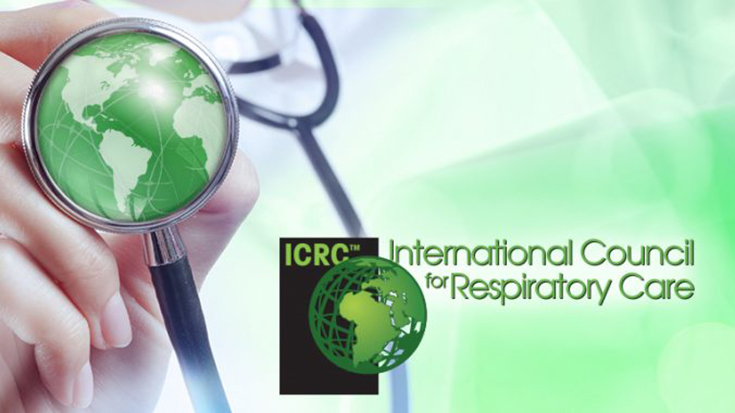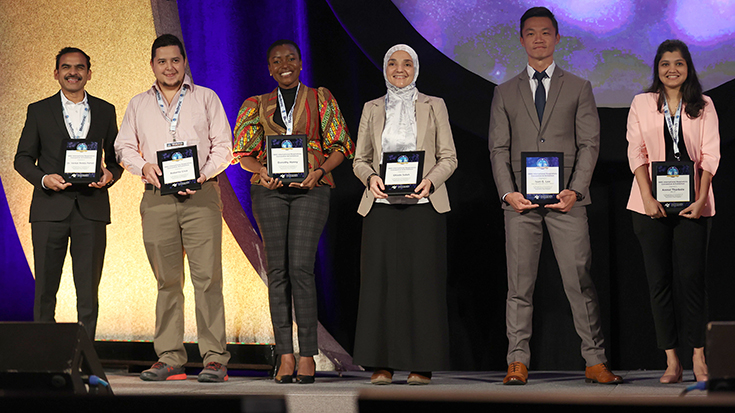
The Latin American Board for Professional Certification in Respiratory Care, CLACPTER, has been leading the certification of professional respiratory therapy competency in Latin America since 2003.
In the ever-changing landscape of health care, validating the knowledge and skills required of the respiratory therapist is essential. In Latin America, the Certified Respiratory Therapist credential is the mechanism to validate the competence, knowledge, and skills required of the respiratory therapist to patient care.
A respiratory practitioner who voluntarily sits for this examination has decided to measure their knowledge of respiratory care skills at an international level and stand with their peers of Latin America in their search for professional ranking. Individuals who successfully challenge the CLACPTER certification examination earn the title of “Terapeuta Respiratorio Certificado, (TRC).”
Currently, roughly one thousand respiratory care professionals have taken the examination, and 75% of them have achieved the TRC credential. For those familiar with the United States credentialling system, it is essential to note that there is no distinction between the terms “registered” and “certified” in Spanish. In Latin America, the certified respiratory therapist credential is the all-inclusive title taken to mean qualified respiratory care professional.
Guidance through an international respiratory care board
The Consejo Latinoamericano para la Certificacion Profesional en Terapia Respiratoria (CLACPTER) is an international group composed of health care professionals from Latin American countries who progress and establish the standardization of respiratory care through a certification examination process.
Included among these professionals are pioneers, leaders, and specialists in respiratory care, which include Respiratory Therapists, Physiotherapists, Kinesiologists, Pulmonologists, Anesthesiologists, Intensivists, and Internists. In addition, the members have a common and permanent interest in the continuing evolution of respiratory care in Latin America. Consequently, they have developed active and formal education programs at the university level, workshops, and academic seminars designed to improve the performance of the respiratory care practitioner at the clinical level.
Also included in these presentations are strategies designed to improve performance and professionalism at the institutional level that impact the sustainability of the Certified Respiratory Therapist in the future.
Ensuring clinical competence
A professional’s job competence must be certified to ensure adequate and timely care. Therefore, CLACPTER has developed an examination to evaluate the respiratory therapy competencies appropriate to Latin America. To ensure that the examination measures the actual work performed, the process includes the evaluation of protocols and procedures as practiced in the different countries of Latin America.
CLACPTER sets the standards for respiratory care and invites respiratory care practitioners to measure their knowledge and skills as performed on the job. The examination follows rigorous evaluation and measurement standards with the National Board of Respiratory Care (NBRC) and Psychometric Services (PSI) of the United States. These professional certifying agencies also provide the CLACPTER certification program quality assurance, security, and quality control essential to the process.
The examination is updated every two years. The process is a joint effort by the NBRC and CLACPTER, in which both the academic and clinical practice disciplines participate. Representatives of the Dominican Republic, Argentina, Mexico, Colombia, Venezuela, and the United States carried out the last update in 2020.
Encouraging professional development
In Latin America, a respiratory therapist is a person who is committed to lifelong learning and constant academic growth. A certified therapist from Latin America provides essential care to vulnerable human beings. Often the disease process makes it clear that the patient’s recovery and quality of life depend on the therapist’s level of preparation, skill, and performance. During the COVID 19 pandemic, therapists can share their strengths and strengthen their weaknesses. Respiratory therapists of Latin America recognize that what they do is fundamental to the patient’s welfare and the essential purpose of their work.
A valued member of the health care team
Respiratory therapy offers the opportunity to interact with other health care professionals. By working in teams with different disciplines, certified respiratory therapists can demonstrate that they contribute to the patient’s recovery with special knowledge and skills, an essential part of the team. In addition, they are aware that the patient’s recovery and subsequent quality of life depend on their preparation, skill, and performance at the bedside.
The Terapeuta Respiratorio Certifficado, TRC, is a respected credential in Latin America. The TRC credential is supported through continual and ongoing analysis of the practice of respiratory care in which the test measures the elements performed on the job in Latin America. The test also meets essential testing principles and the requirements of current testing standards.
Helping hospitals meet quality of care standards
At an international level, organizations like the International Commission for Hospital Accreditation (IJCAHO) are responsible for the accreditation of services providing health care in hospitals and clinics throughout the world. To comply with these professional certification standards, the Joint Commission International (JCI) requires that all respiratory care personnel be among those professionals whose abilities and skills are evaluated and certified. The CLACPTER stands ready to assist the hospitals and clinics of Latin America in meeting this challenge.
Email newsroom@aarc.org with questions or comments, we’d love to hear from you.

















